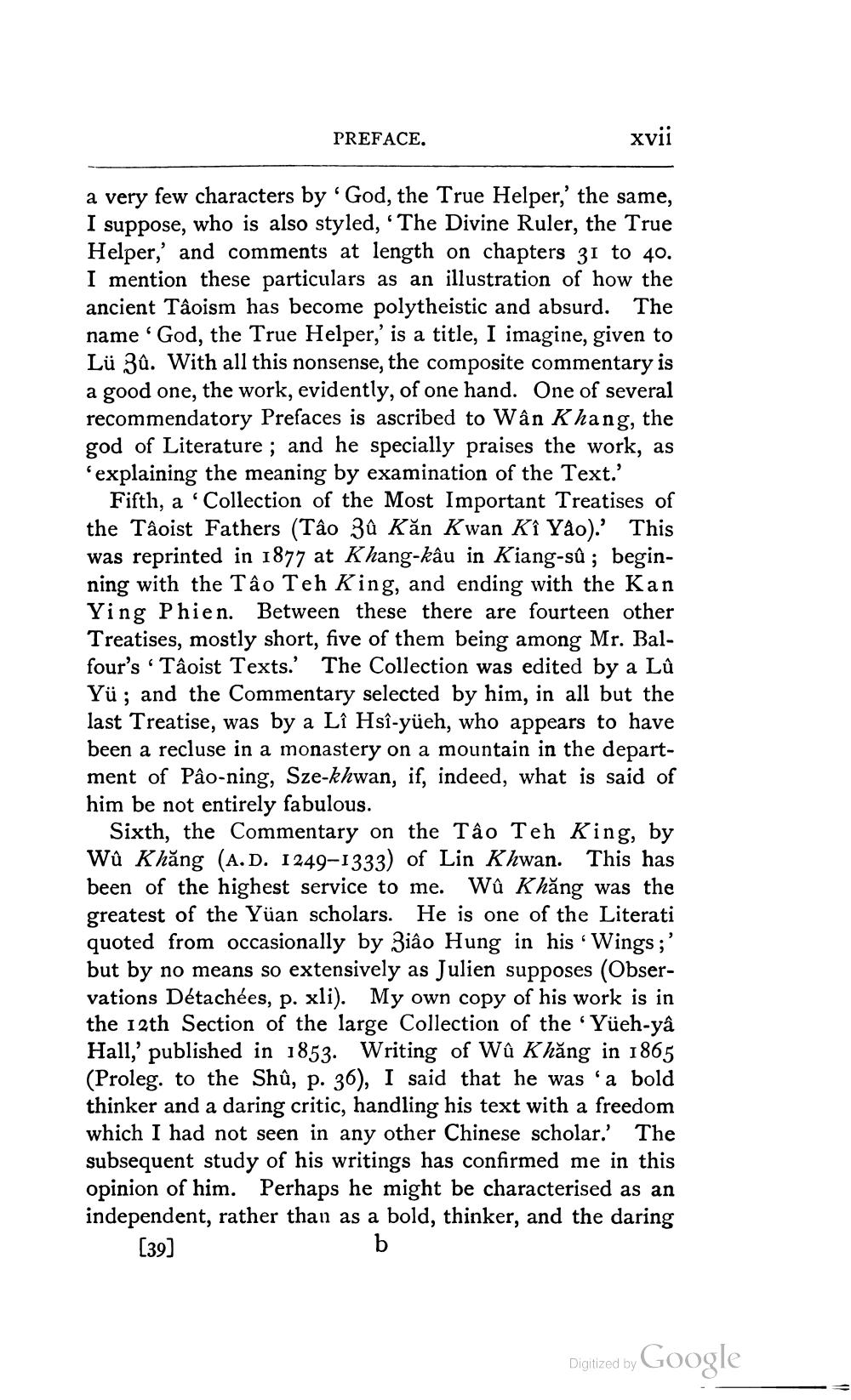________________
PREFACE.
xvii
a very few characters by God, the True Helper,' the same, I suppose, who is also styled, 'The Divine Ruler, the True Helper,' and comments at length on chapters 31 to 40. I mention these particulars as an illustration of how the ancient Tâoism has become polytheistic and absurd. The name 'God, the True Helper,' is a title, I imagine, given to Lü Zû. With all this nonsense, the composite commentary is a good one, the work, evidently, of one hand. One of several recommendatory Prefaces is ascribed to Wân Khang, the god of Literature ; and he specially praises the work, as "explaining the meaning by examination of the Text.'
Fifth, a Collection of the Most Important Treatises of the Taoist Fathers (Tâo Zû Kăn Kwan Kî Yảo).' This was reprinted in 1877 at Khang-kâu in Kiang-sû; beginning with the Tâo Teh King, and ending with the Kan Ying Phien. Between these there are fourteen other Treatises, mostly short, five of them being among Mr. Balfour's 'Tâoist Texts.' The Collection was edited by a Lû Yü; and the Commentary selected by him, in all but the last Treatise, was by a Lî Hsî-yüeh, who appears to have been a recluse in a monastery on a mountain in the department of Pâo-ning, Sze-khwan, if, indeed, what is said of him be not entirely fabulous.
Sixth, the Commentary on the Tâo Teh King, by Wû Khăng (A.D. 1249-1333) of Lin Khwan. This has been of the highest service to me. Wû Khăng was the greatest of the Yüan scholars. He is one of the Literati quoted from occasionally by Ziâo Hung in his Wings;' but by no means so extensively as Julien supposes (Observations Détachées, p. xli). My own copy of his work is in the 12th Section of the large Collection of the Yüeh-yâ Hall,' published in 1853. Writing of Wû Khăng in 1865 (Proleg. to the Shû, p. 36), I said that he was 'a bold thinker and a daring critic, handling his text with a freedom which I had not seen in any other Chinese scholar. The subsequent study of his writings has confirmed me in this opinion of him. Perhaps he might be characterised as an independent, rather than as a bold, thinker, and the daring
[39]
Digitized by Google




